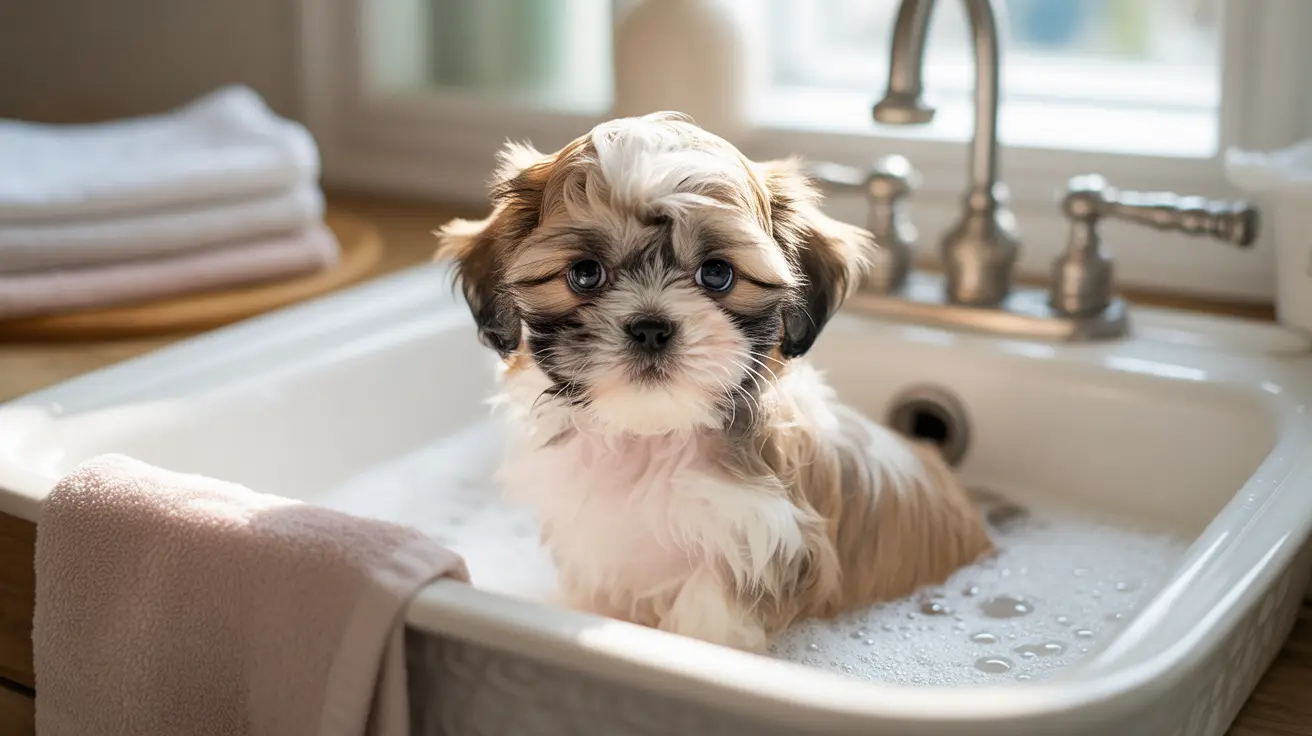Dealing with fleas on newborn puppies requires special care and gentle approaches, as these tiny creatures are too young for conventional flea treatments. This comprehensive guide will walk you through safe, effective home remedies and techniques to protect your vulnerable puppies from dangerous flea infestations.
Understanding the right methods is crucial, as newborn puppies can quickly become weak or anemic from flea infestations. Let's explore proven, gentle solutions that will keep your puppies safe while effectively eliminating their flea problem.
Understanding the Risks of Fleas in Newborn Puppies
Fleas pose serious health threats to newborn puppies, whose tiny bodies and developing immune systems make them especially vulnerable. These parasites can quickly cause anemia due to blood loss, potentially leading to weakness, stunted growth, and in severe cases, death.
Additionally, puppies can become infected with tapeworms if they accidentally ingest fleas while grooming, creating additional health complications that require veterinary intervention.
Safe and Gentle Flea Removal Methods
Warm Water Bathing Technique
One of the safest ways to remove fleas from newborn puppies is through careful bathing. Use slightly warm water and unscented Castile soap or mild dish soap. Keep the water shallow and support the puppy's head throughout the process to prevent stress or accidents.
Flea Combing Process
A fine-toothed flea comb is an essential tool for removing fleas safely. Dip the comb in warm, soapy water between passes to kill any captured fleas. Work systematically through the puppy's coat, paying special attention to areas where fleas commonly hide.
Natural Home Remedies for Flea Control
Safe Diluted Solutions
For puppies over a few weeks old, carefully diluted apple cider vinegar or salt water solutions can help deter fleas. Always consult your veterinarian for proper dilution ratios and application methods to ensure safety.
Environmental Treatment
Treat your home environment with natural deterrents like baking soda on bedding and carpets. Vacuum thoroughly and wash all bedding in hot water regularly to prevent reinfestation.
Preventing Reinfestation
Create a flea-free environment by treating all pets in the household and maintaining strict cleaning routines. Regular inspection and grooming of both mother and puppies helps catch problems early before they become severe.
Remember that prevention is always easier than treatment. Keep your puppy's living area clean and monitor for any signs of flea activity daily.
Frequently Asked Questions
What safe home remedies can I use to remove fleas from newborn puppies without harming them?
Use warm water baths with mild, unscented soap, gentle flea combing, and careful manual removal. For puppies over a few weeks old, diluted apple cider vinegar solutions can be safely used under veterinary guidance.
How often should I bathe newborn puppies to get rid of fleas using gentle treatments?
Bathe puppies every 3-4 days if needed, but avoid over-bathing as this can dry out their sensitive skin. Always keep puppies warm during and after baths to prevent chilling.
Can apple cider vinegar or lemon spray be used safely on puppies to control fleas?
These solutions should only be used on puppies older than a few weeks, and must be properly diluted. Always consult your veterinarian first and avoid applying near the face or sensitive areas.
What environmental steps should I take at home to prevent fleas from reinfesting my newborn puppies?
Vacuum daily, wash bedding in hot water frequently, treat all pets in the household for fleas, and consider using safe environmental treatments like baking soda on carpets and furniture.
When is it safe to start using vet-recommended flea treatments on puppies, and what options are best?
Most veterinary flea treatments are safe to begin when puppies reach 6-8 weeks of age, depending on their weight and health status. Always consult your veterinarian for specific product recommendations based on your puppy's individual needs.
Conclusion
Protecting newborn puppies from fleas requires patience, gentle handling, and consistent care. While chemical treatments must wait until puppies are older, these safe home remedies and preventive measures can effectively manage flea problems in the meantime.
Remember to always monitor your puppies closely for signs of distress or adverse reactions to any treatment, and consult your veterinarian immediately if you notice concerning symptoms or severe infestations.






